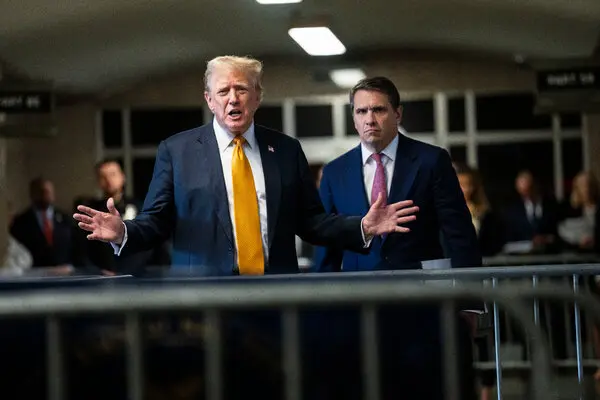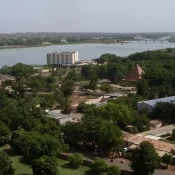
Trump is seeking Supreme Court intervention to prevent the imposition of a sentence in a criminal case in New York
President-elect Trump is requesting Supreme Court intervention to suspend sentencing, citing immunity claims, just days before his presidential inauguration.
In a New York criminal case, President-elect Donald Trump has escalated his legal battle to the US Supreme Court, where he is seeking a last-minute intervention to suspend the proceedings, just days before his scheduled sentencing.
His attorneys submitted an emergency application late Tuesday, requesting that the justices halt the sentencing, which is scheduled for Friday, a mere ten days prior to Mr. Trump’s inauguration as the 47th president.
The request is made in response to the rejection of a comparable petition by a New York appeals court earlier on Tuesday, which raised questions about the validity of Mr. Trump’s arguments.
The claim that he is entitled to full immunity from prosecution and sentencing as president-elect is the cornerstone of his appeal. This stance is based on a contentious Supreme Court ruling from last year, which extended extensive immunity to former presidents for their official acts.
The legal team of Mr. Trump wrote, “In order to prevent grave injustice and harm to the institution of the presidency and the operations of the federal government, this court should enter an immediate stay of further proceedings in the New York trial court.”
The Supreme Court has directed prosecutors to respond to the application by Thursday morning, suggesting that a decision may be rendered prior to the sentencing. The Manhattan district attorney’s office, which prosecuted Mr. Trump, has refrained from making any public statements, except to indicate that it intends to submit a response to the court.
Despite the fact that Justice Juan M. Merchan, the trial judge, has stated that Mr. Trump will not be sentenced to prison time, the sentencing would formally establish his status as a felon, making him the first U.S. president to hold such a designation.
Legal professionals have observed that the felony conviction could have a substantial symbolic impact and could confound his responsibilities as president.
Mr. Trump’s attorneys contended that the sentencing of a sitting or prospective president could result in “constitutionally intolerable” restrictions, including travel restrictions, reporting requirements, or probationary conditions. They also stated that the ancillary consequences of a felony conviction could potentially undermine his capacity to fulfill his presidential duties.
Mr. Trump’s legal team also requested an emergency stay from the Court of Appeals, the highest court in New York, due to the urgency of the situation and the limited time remaining before his inauguration. The filing stated that the only viable option is to file applications in both courts, as it is highly uncertain whether the New York Court of Appeals will act within the next 48 hours.
The sentencing process could be significantly disrupted if the Supreme Court approves the stay. Mr. Trump is protected from criminal prosecution by long-standing legal precedent upon his assumption of the presidency.
Although Mr. Trump’s chances of being confirmed to the Supreme Court are uncertain, the conservative-leaning bench, which includes three justices he appointed during his first term, has previously ruled in his favor.
A federal criminal case against Mr. Trump that originated from efforts to overturn the 2020 election was significantly diminished by the court’s decision on presidential immunity last year.
However, there is a disagreement among legal professionals regarding the validity of his current petition. The case has already been met with skepticism in lower courts, which have rejected his immunity claims in this particular instance.
All Categories
Recent Posts
Tags
+13162306000
zoneyetu@yahoo.com



